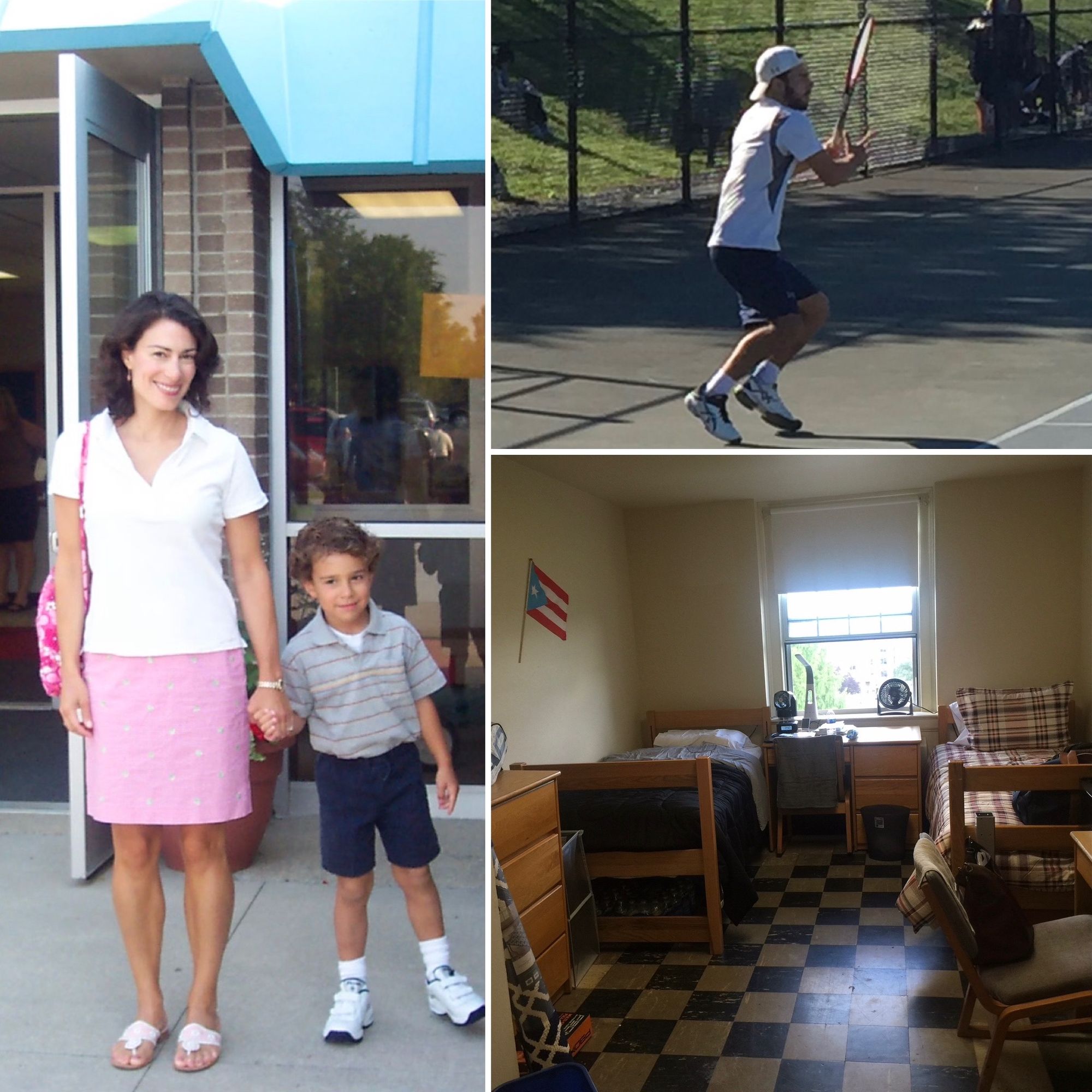You may already know your child’s teacher or have their schedule in hand. You may know the bus driver, have the new lunch box ready to go, new shoes laced up and a few new clothes in the closet, the list from the school or your classroom teacher has been filled and pencils are in the pencil pouch along with folders and paper and if you read or listened to last week’s episode/post your child’s home study area is organized and ready to go, of course with adequate lighting and chargers. Just as important as all of the preparation and supplies are you and your child’s list of goals for the school year. Yes, I say YOU and YOUR CHILD. At some point, you’ll let go of the ‘apron strings’ and they’ll have to figure things out on their own and get ready for new beginnings in their life like starting their first serious job out in the real world as they launch into their adult working life, maybe open a new chapter with a spouse, make the purchase of a car or house, or have their own child, but when they are under YOUR ROOF, they get to have you help them, mentor them and teach them how to embark on and prepare for the inauguration of a new school year.

Being prepared is part of success no matter what the event or task. Whether it is a school year, a journey, a sport season or a project, good preparation gives the best chance for a fruitful outcome. As you and your child prepare, talk about the goals you both have for the upcoming academic year. Setting goals gives us something to shoot for. Imagine setting off to sail from Port Huron and not having a clear destination in mind, “Oh, we’ll just get on the boat and go.” Everyone gets on board and someone says, “it would be nice to sail up to Mackinac Island”, someone says, “How about sailing down to Lake St. Claire Shores and someone says, “I’ve always wanted to sail under the Mackinaw Bridge and sail from there down to Ludington, and then someone says, “let’s just go out and cruise around, drop anchor and go swimming.” All ideas sound great, but with no clear plan, and goals set before they got on the boat, who knows where they’ll end up. Oh, and the storm clouds are rolling in and thunder is heard off in the distance. Maybe checking the weather channel the day before would have been a good idea. Without preparation and goals, you are not going to go far or accomplish much. Now, if the weather had been checked and rainstorms were in the forecast, plans could have been made for another sailing date and with a clear plan including an itinerary to head up to Mackinac Island, bike around the island and then head back down to the Port Huron Area.

You’ll have your own set of goals that pertain to your child and your family. I’ll give you some ideas and you can add to your own, if necessary.
- We would start with goals to help the child succeed before they even head out the door, goals for home, such as getting to bed on time, being prepared for school and class as in the child will always have everything needed out the night before to make mornings go smoothly leaving time for an adequate breakfast, discussion of the day ahead, getting to school on time and being prepared to learn and take any tests or assessments.
- To be prepared for class by NOT waiting to last minute for a test or project? Set the goal of having the child go through each subject every afternoon/evening to look over material covered in class that day, reviewing what was learned so that when it comes time to study for a chapter or unit test, you know the material cold. If you child has a paper or project coming up, a little work each days means no rushing to throw something together the night before it’s due and turning in poor quality work.
- To keep the locker cleaned out or school desk organized.
- As the parent, know your child’s grade level objectives or benchmarks. Each school district calls them something different, but what I am referring to is what the school district expects each child to master in each subject area in order to be promoted to the next grade. Work on these regularity. For example, for elementary school grades, if multiplication/division facts must be mastered, work on them daily, in the car or when your child has little pockets of time. Just a few minutes a day on these drills will pay off with knowing these facts cold.
- For the parent, get to know the school and your child’s teacher(s). Introduce yourself and let them know that you want to be aware if there is a problem early on. If there is an online platform to check grades, know how to use it so there are no surprises when report cards or assessments come out. Check frequently WITH your child so you both know what’s going on. If you have any questions on a missed assignment contact the teacher ASAP before the problem gets bigger. Also, be engaged with what your child is studying, what units they are covering so that you can have interesting discussion on these topics.
- Set a goal for outside reading. Of course kids will read for content in their academic studies but allow for some time everyday for recreational reading. Whether it involves a regular trip to the library or reading from your own home library, help your child find books and media on topics they are interested in. When they have an interest in the material, they will want to sit down to read, in turn, improving comprehension and vocabulary. Set a good example yourself by reading when they do or at least sometime when they can see that YOU TOO READ FOR FUN AND ENJOYMENT.
- As a family decide what extra-curricular activities are appropriate for your family. Whether it’s sports, the arts or any other activity, set realistic goals. DON’T over program your child or your family time. Consider your time and ability to transport them and the amount of children in the family. Make sure your child has some time to practice for their activity, do their school work and allow for time for them to “be a child.” An outside activity, away from their academics, helps kids learn to manage their time and pursuing a skill apart from their studies, allows for a mental break. Consider that some of these activities pursued down the road, could lead to a college scholarship, a career or a recreational activity to take part in for a lifetime. At the early ages, allow your child to explore the activity without pressure and make it fun for them. If they become part of a part of a team, instill the team concept with your child. Look for good quality coaches/instructors/mentors/adults who will instill the same values that your family subscribes to. Set goals for their activities that are appropriate.
- Include health and fitness goals for your family. Think about a family run, bike ride or any other activity that your family enjoys. Our kids had a tennis lesson on Saturday mornings and after the lesson they ran with Dad. Physical fitness is so crucial for your child’s development, even if they don’t play a sport. Kids need to be active. It helps relieve stress, is good for their entire body and physical activity is good for the mind. Getting out of the house for some sunshine and exercise helps strengthen an immune system too. Teach them how to best care for their bodies. This is their vehicle to get through life and they only get one, so they better learn how to best maintain it.
- Consider what your goals and limits will be for technology. Of course technology is part of our world, it’s not going away and for some subjects they will need it. Teach them how to manage it, setting limits and consequences For deviating from the rules you set up.
- Address your child’s spiritual needs. Our kids had a Confirmation program during the middle school years. If your place of worship has an youth group or a weeknight school this can be a verypositive social activity. It allows them to learn about their faith and develop friendships with likeminded friends with similar values.
- Lastly, be consistent. If you say no phones charge in their room, mean it and stick to it. Whether it is bed time, wake-up time or anything else, consistence teaches your child the importance of a routine and following through. With that being said, if something just isn’t working, discuss a better way to do it and make changes. This too is a good lesson that sometimes going in a different direction or making alterations to a plan is necessary for success. Make adjustments and move forward, not looking back.

This gives you some ideas on our list and your family may have the same, some similar or some unique to you and your child. The preparation and setting of goals give you plenty to talk to your child about. Talking leads to good communication. Showing your child that you are engaged and interested, sends the message that education is important. Remember that education is not just what happens at school , it also happens outside of the classroom, in the home and in every activity they take part in. YOU are their most important teacher your child will ever have and you are the one responsible to make sure they get the appropriate education they need, to prepare them for the adult world. It is a tall order but YOU know your child better than anyone else and you know what they need. The school is part of YOUR TEAM. YOU are the “Quarterback” of your child’s education. Assemble a winning team of adults as their teachers, coaches, mentors and spiritual leaders who have your child’s best interest in mind. It’s a long journey, make it fun and take time to enjoy it along the way for many Great Days ahead. 🍎






